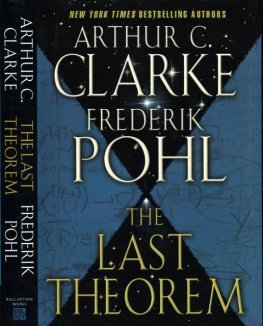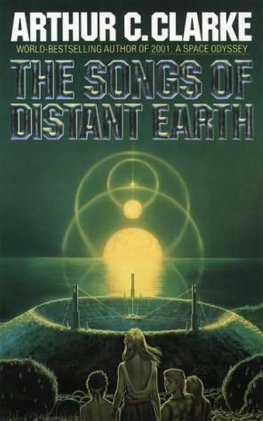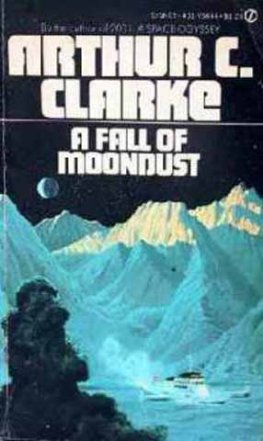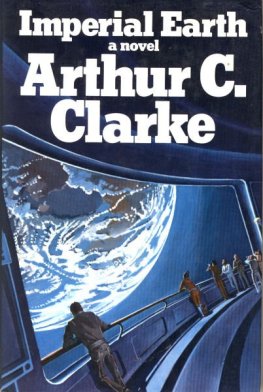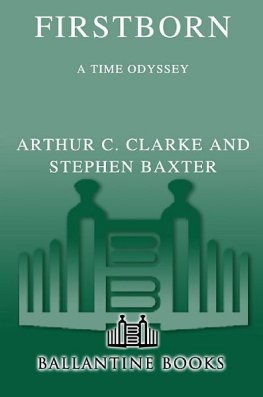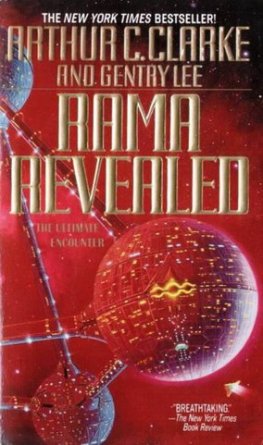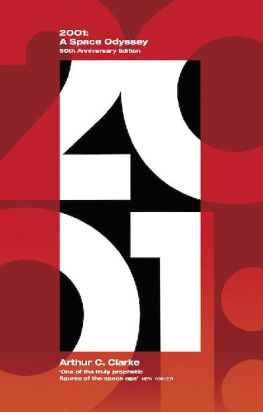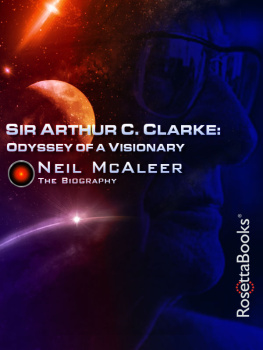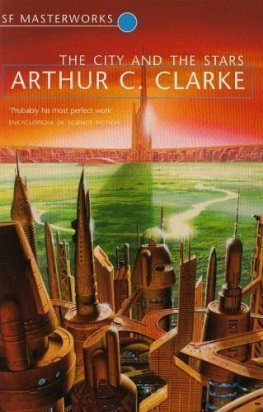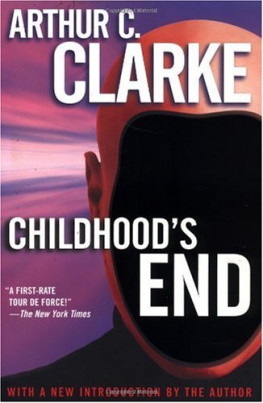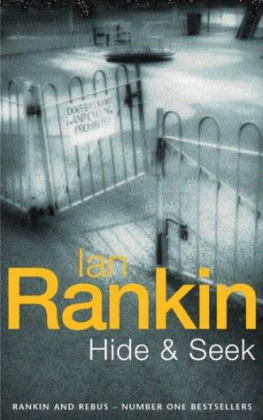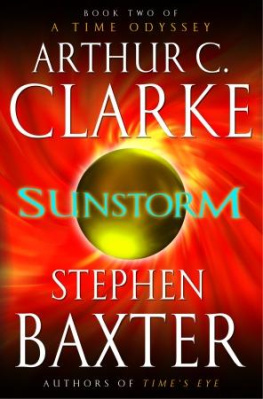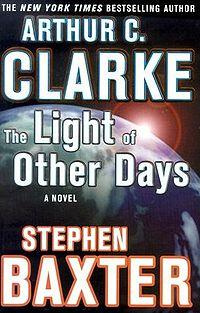Arthur Clarke - Hide and Seek
Here you can read online Arthur Clarke - Hide and Seek full text of the book (entire story) in english for free. Download pdf and epub, get meaning, cover and reviews about this ebook. year: 1949, publisher: Street & Smith Publications, Inc., genre: Science fiction. Description of the work, (preface) as well as reviews are available. Best literature library LitArk.com created for fans of good reading and offers a wide selection of genres:
Romance novel
Science fiction
Adventure
Detective
Science
History
Home and family
Prose
Art
Politics
Computer
Non-fiction
Religion
Business
Children
Humor
Choose a favorite category and find really read worthwhile books. Enjoy immersion in the world of imagination, feel the emotions of the characters or learn something new for yourself, make an fascinating discovery.

- Book:Hide and Seek
- Author:
- Publisher:Street & Smith Publications, Inc.
- Genre:
- Year:1949
- Rating:5 / 5
- Favourites:Add to favourites
- Your mark:
- 100
- 1
- 2
- 3
- 4
- 5
Hide and Seek: summary, description and annotation
We offer to read an annotation, description, summary or preface (depends on what the author of the book "Hide and Seek" wrote himself). If you haven't found the necessary information about the book — write in the comments, we will try to find it.
Hide and Seek — read online for free the complete book (whole text) full work
Below is the text of the book, divided by pages. System saving the place of the last page read, allows you to conveniently read the book "Hide and Seek" online for free, without having to search again every time where you left off. Put a bookmark, and you can go to the page where you finished reading at any time.
Font size:
Interval:
Bookmark:
Hide and Seek
by Arthur C. Clarke
We were walking back through the woods when Kingman saw the grey squirrel. Our bag was a small but varied onethree grouse, four rabbits (one, I am sorry to say, an infant in arms) and a couple of pigeons. And contrary to certain dark forecasts, both the dogs were still alive.
The squirrel saw us at the same moment. It knew that it was marked for immediate execution as a result of the damage it had done to the trees on the estate, and perhaps it had lost close relatives to Kingmans gun. In three leaps it had reached the base of the nearest tree, and vanished behind it in a flicker of grey. We saw its face once more, appearing for a moment round the edge of its shield a dozen feet from the ground; but though we waited, with guns levelled hopefully at various branches, we never saw it again.
Kingman was very thoughtful as we walked back across the lawn to the magnificent old house. He said nothing as we handed our victims to the cookwho received them without much enthusiasmand only emerged from his reverie when we were sitting in the smoking room and he remembered his duties as a host.
That tree-rat, he said suddenly (he always called them tree-rats, on the grounds that people were too sentimental to shoot the dear little squirrels), it reminded me of a very peculiar experience that happened shortly before I retired. Very shortly indeed, in fact.
I thought it would, said Carson dryly. I gave him a glare: hed been in the Navy and had heard Kingmans stories before, but they were still new to me.
Of course, Kingman remarked, slightly nettled, if youd rather I didnt
Do go on, I said hastily. Youve made me curious. What connection there can possibly be between a grey squirrel and the Second Jovian War I cant imagine.
Kingman seemed mollified.
I think Id better change some names, he said thoughtfully, but I wont alter the places. The story begins about a million kilometres sunward of Mars
K.15 was a military intelligence operative. It gave him considerable pain when unimaginative people called him a spy, but at the moment he had much more substantial grounds for complaint. For some days now a fast enemy cruiser had been coming up astern, and though it was flattering to have the undivided attention of such a fine ship and so many highly trained men, it was an honour that K.15 would willingly have forgone.
What made the situation doubly annoying was the fact that his friends would be meeting him off Mars in about twelve hours, aboard a ship quite capable of dealing with a mere cruiserfrom which you will gather that K.15 was a person of some importance. Unfortunately, the most optimistic calculation showed that the pursuers would be within accurate gun range in six hours. In some six hours five minutes, therefore, K.15 was likely to occupy an extensive and still expanding volume of space.
There might just be time for him to land on Mars, but that would be one of the worst things he could do. It would certainly annoy the aggressively neutral Martians, and the political complications would be frightful. Moreover, if his friends had to come down to the planet to rescue him, it would cost them more than ten kilometres a second in fuelmost of their operational reserve.
He had only one advantage, and that a very dubious one. The commander of the cruiser might guess that he was heading for a rendezvous, but he would not know how close it was or how large was the ship that was coming to meet him. If he could keep alive for only twelve hours, he would be safe. The if was a somewhat considerable one.
K.15 looked moodily at his charts, wondering if it was worth while to burn the rest of his fuel in a final dash. But a dash to where? He would be completely helpless then, and the pursuing ship might still have enough in her tanks to catch him as he flashed outwards into the empty darkness, beyond all hope of rescuepassing his friends as they came sunward at a relative speed so great that they could do nothing to save him.
With some people, the shorter the expectation of life, the more sluggish are the mental processes. They seem hypnotized by the approach to death, so resigned to their fate that they do nothing to avoid it. K.15, on the other hand, found that his mind worked better in such a desperate emergency. It began to work now as it had seldom done before.
Commander Smiththe name will do as well as any otherof the cruiser Doradus was not unduly surprised when K.15 began to decelerate. He had half expected the spy to land on Mars, on the principle that internment was better than annihilation, but when the plotting room brought the news that the little scout ship was heading for Phobos, he felt completely baffled. The inner moon was nothing but a jumble of rock some twenty kilometres across, and not even the economical Martians had ever found any use for it. K.15 must be pretty desperate if he thought it was going to be of any greater value to him.
The tiny scout had almost come to rest when the radar operator lost it against the mass of Phobos. During the braking manoeuvre, K.15 had squandered most of his lead and the Doradus was now only minutes awaythough she was now beginning to decelerate lest she overrun him. The cruiser was scarcely three thousand kilometres from Phobos when she came to a complete halt: of K.15s ship, there was still no sign. It should be easily visible in the telescopes, but it was probably on the far side of the little moon.
It reappeared only a few minutes later, travelling under full thrust on a course directly away from the sun. It was accelerating at almost five gravitiesand it had broken its radio silence. An automatic recorder was broadcasting over and over again this interesting message:
I have landed on Phobos and am being attacked by a Z-class cruiser. Think I can hold out until you come, but hurry.
The message wasnt even in code, and it left Commander Smith a sorely puzzled man. The assumption that K.15 was still aboard the ship and that the whole thing was a ruse was just a little too naive. But it might be a double-bluff: the message had obviously been left in plain language so that he would receive it and be duly confused. He could afford neither the tune nor the fuel to chase the scout if K.15 really had landed. It was clear that reinforcements were on the way, and the sooner he left the vicinity the better. The phrase Think I can hold out until you come might be a piece of sheer impertinence, or it might mean that help was very near indeed.
Then K.i5s ship stopped blasting. It had obviously exhausted its fuel, and was doing a little better than six kilometres a second away from the sun. K.15 must have landed, for his ship was now speeding helplessly out of the Solar System, Commander Smith didnt like the message it was broadcasting, and guessed that it was running into the track of an approaching warship at some indefinite distance, but there was nothing to be done about that. The Doradus began to move towards Phobos, anxious to waste no time.
On the face of it, Commander Smith seemed the master of the situation. His ship was armed with a dozen heavy guided missiles and two turrets of electromagnetic guns. Against him was one man in a space suit, trapped on a moon only twenty kilometres across. It was not until Commander Smith had his first good look at Phobos, from a distance of less than a hundred kilometres, that he began to realize that, after all, K.15 might have a few cards up his sleeve.
To say that Phobos has a diameter of twenty kilometres, as the astronomy books invariably do, is highly misleading. The word diameter implies a degree of symmetry which Phobos most certainly lacks. Like those other lumps of cosmic slag, the asteroids, it is a shapeless mass of rock floating in space with, of course, no hint of an atmosphere and not much more gravity. It turns on its axis once every seven hours thirty-nine minutes, thus keeping the same face always to Marswhich is so close that appreciably less than half the planet is visible, the poles being below the curve of the horizon.
Font size:
Interval:
Bookmark:
Similar books «Hide and Seek»
Look at similar books to Hide and Seek. We have selected literature similar in name and meaning in the hope of providing readers with more options to find new, interesting, not yet read works.
Discussion, reviews of the book Hide and Seek and just readers' own opinions. Leave your comments, write what you think about the work, its meaning or the main characters. Specify what exactly you liked and what you didn't like, and why you think so.

